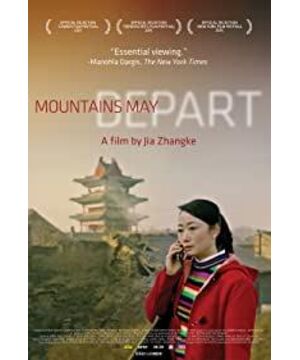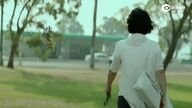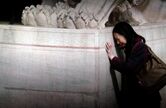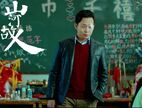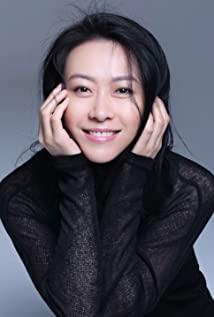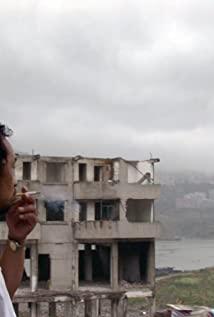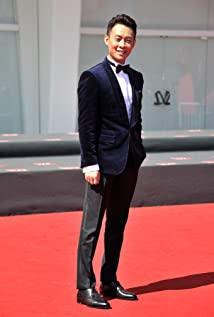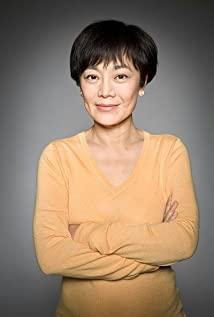Russia's Tarkovsky has a movie called "Nostalgia". In the film, the Russian poet Andrei meets the madman Dominic in Italy. In Dominic's madness, he finds that his nostalgia for his hometown Russia comes from his love for his hometown. The sentimentality of the fading of its civilization, he carefully escorted the candle to roam in the river without making it extinct, is a kind of care for the fire of Russian civilization. The Turkish writer Orhan was afraid of Muk and was worried that Istanbul was gradually losing its cultural identity in the process of modernization. He wandered the streets of Istanbul with his "huzun". Hometown is the most noble spiritual destination of a director or writer. In contemporary China, the one who expresses nostalgia with emotion is Jia Zhangke's "Old Man in Mountains and Rivers".
There is a common detail in the first two paragraphs of the film. A little boy walks silently through the market with a large knife of Guan Gong on his shoulder. The director uses a long-range view to capture it. Among the ordinary and dense crowds, the existence of such a character seems to exist. Quite eye-catching. This is still a rather surreal symbol often found in Jia Zhangke's films. A Guan Gong knife represents loyalty and affection. The little boy has been carrying a knife alone for more than ten years. As he grows up, neither the knife nor the expression on his face has changed. It is a person's insistence on human feelings and affection. I don't know whether Jia Zhangke and this little boy had doubts and hesitations in this insistence. In "The Three Gorges Good Man", Jia Dao used the words of Xiao Ma to say: " This era is not for us because we are all too nostalgic." I think that Jia Zhangke may have doubts about the "people" who carry the feelings, but he should not have such feelings themselves. From "Xiao Wu" to "The Good Man in Three Gorges" and then to this "Old Man in Mountains and Rivers", he has no doubts about his hometown. , has always been full of care and enthusiasm for individuals in the changing times.
In the show of folk songs and dances in Fenyang in 1999 and 2014, the camera used a defocusing process for the colorful scenes. If I remember correctly, it seems that a down-frame shot was also used, and the people and the scene became blurred. Seemingly integrated, film is a dynamic art that integrates time and space. At this time, form and content are unified, people shape their own times, and time shapes people, and people's emotions and destiny are affected by time. Stretched, blurred, in 2025 at the end of the film, people have been alienated.
On the eve of Liangzi's return home, he passed a cage with a tiger. The camera shot Liangzi in a traversing manner across the railings, and switched to the tiger in the cage with a reverse shot. The man and the tiger were facing each other across the cage. Both are trapped beasts, there is no difference. Although the tiger is fierce, trapped in the cage can only do nothing. Away from a foreign country, unfamiliar space and language are the classics, nostalgia for the homeland, and doubts about the present are the weft. Together, we weave an invisible cage. People are in this cage, full of ills, and returning to their hometown at this time seems to be It became the most suitable choice, Liang Zi can return to Fenyang, but Zhang Jinsheng and Zhang Daole 11 years later, did not have such good luck. As a result, Liang Zi dragged his sick body back to Fenyang, and then it was a matter of course to find Shen Tao. Shen Tao has always acted as a symbol of lover, wife, mother, and homeland in the film. Only the sickness or alienation in the individual can be cured. The role of Liang Zi's wife also seems to carry some symbolic meaning. She is not from Fenyang, she does not speak Fenyang dialect, and being with Liang Zi is equivalent to reminding a "foreigner" from time to time.
In this 2014 paragraph, there are two descriptions of the deceased. The first time it appeared on Liang Zi's way home, a mother and her child squatted down on the roadside to burn paper money. Another place was Shen Tao's farewell to his father who died suddenly. This part of the film is a turning point in the life of the key characters in the film. The death spirit floating over the heads of Liang Zi and Shen Tao seems to indicate that the emotional fate of the next two sets a pessimistic tone.
His father, Zhang Jinsheng, fled to Australia due to an economic crime. He was in a panic all day long. The gun never left his body. Guns are a symbol of male strength. However, the more guns there are, the less sense of security. Freud's "castration anxiety". The backlog of capital and power in Zhang Jinsheng has alienated human nature, and the distance between him and his hometown has made this alienation incurable. He has power but no one to target. For Zhang Jinsheng, the struggle against the enemy and the exercise of power and capital are the way to shape oneself and make oneself meaningful. When one party is too heavy and the other is too light, the self is out of balance, and the temperament of human beings is unbalanced. Get weird and agitated, not like yourself. The most obvious manifestation is the communication gap with his son.
His son Zhang Dale has many regional symbols: he was born in Fenyang, grew up in Shanghai, and came to Australia in 2014. He does not speak his native language. The son's desire to leave his father and school is "I can do anything." This "I can do anything" means no purpose and no direction. The freedom in the son's mouth can only be said to be a crazy desire to escape from the present, and an unfamiliar environment. The escape from the father, but there is no destination, want to escape but do not know where to go, this is the greatest lack of freedom. The tiger Liang Jianjun saw before returning to Fenyang back then is now haunting Australia 11 years later. Compared with him, Liang Jianjun, who failed to love Shen Tao and left Fenyang angrily without turning back, was the most free at a certain moment. If Zhang Jinsheng's alienation bears any fruit, it is his own son Zhang Daole. At this time, the significance of the Chinese teacher played by Zhang Aijia in Zhang Dale's life naturally symbolizes a kind of motherhood. This "mother" not only represents the missing mother's love, but also the hometown that is difficult to return. In the end, Zhang Dale and the Chinese teacher played by Zhang Aijia went from a student relationship to a mother-son relationship, and finally developed into a strange lover relationship. Unlike his father's "castration anxiety", there is a kind of "Oedipus complex" in him. . Thinking of the famous "rosebud" that appeared in "Citizen Kane", I always felt that this flower bud symbolized Kane's desire to return to childhood in his later years, the nostalgia for the mother's love that was lost early, and the return to childhood. The aspirations of the snowy country town. For Zhang Jinsheng and Liang Jianjun, their rosebuds can be a Fenyang dialect or a dumpling during Chinese New Year. For Zhang Daole, his rosebuds hang around his neck and are a set of keys given to him by his mother Shen Tao. Sadly, he may never be able to open the door of his house.
At this time, in Australia in 2025, the young man carrying the Guan Gong knife no longer appears. Zhang Daole looked at his hometown across the sea in the sound of the waves. The sound of the waves seemed to be full of calls from his mother, Shen Tao. This unfree boy was helpless and had nowhere to go, so he had to stay in Australia. At this time, Fenyang has ushered in the New Year. My mother came to dance in the snowy suburbs. The music in the dance hall in the 1990s surreal matched my mother's lonely dance steps, echoing the song and dance at the beginning, but another group of people's carnival turned into a surreal dance. Tao Tao's solo dance. At this time, all love and family have been lost. This dance is a nostalgia for the past, and it is also a soul-calling for human relationships. We look forward to the emotions of people in the future through the eyes of the director. We only see ruins and heavy snow, which is quite sad. desolate.
When the third segment of the film enters Australia in 2025, time is the future, not the present that Director Jia is good at. The region becomes distant and unfamiliar, the language becomes English, and the three important elements of time, space and language become alienated, making the third The completion of this part is much lower than the first two paragraphs, the richness of the information inside the lens is greatly reduced compared with the first two paragraphs, the characters' emotions are expressed too eagerly and straightforwardly, and the poetic language near the end seems to be summarizing the article central idea. This is not a pity. But what's interesting is that this has instead formed a relationship between reality and film. A Fenyang boy who is so nostalgic for his hometown has become clumsy and aphasia in expression after leaving a familiar place.
It's not just me, this should be the first time that many people have watched Jia Zhangke's movie on the big screen. This movie does have some regrets, but its emotions, especially the first two paragraphs, are deep and abundant, and it suddenly returns to the end of the movie. When I was in Fenyang, Shanxi, which is far away in time and space, I was surrounded by a strong emotional impact. This experience is really rare.
View more about Mountains May Depart reviews


